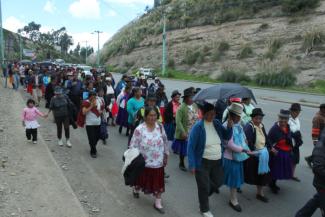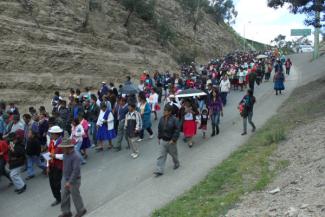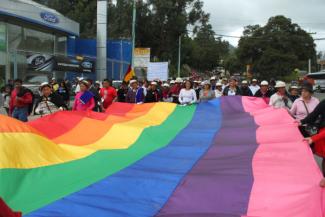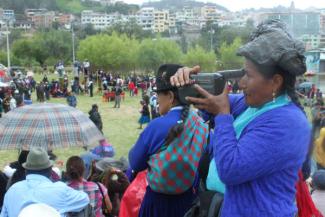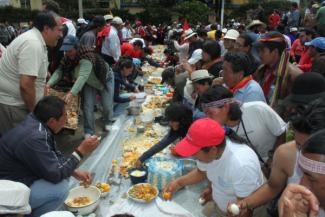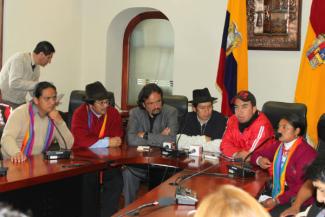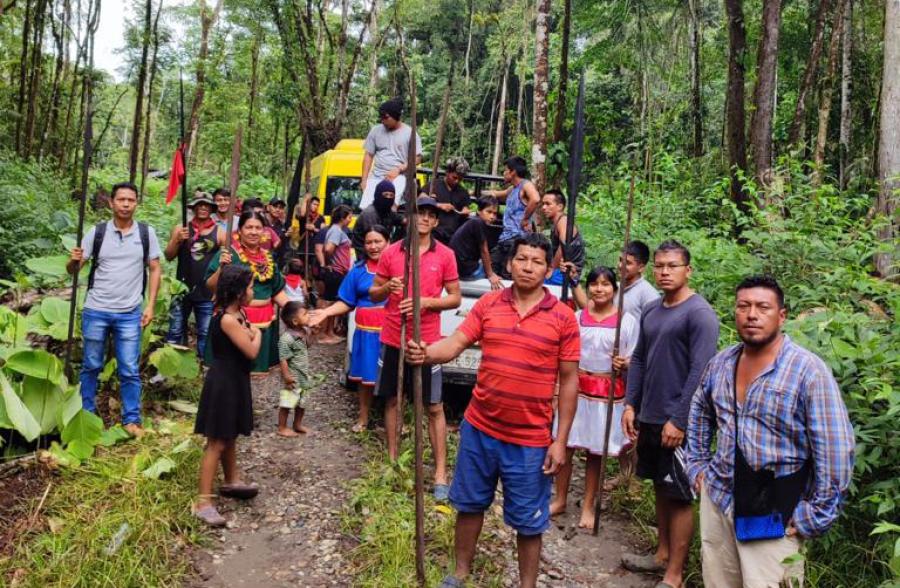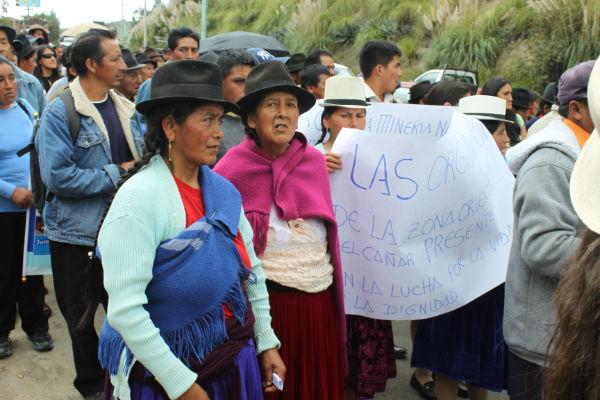
March 8, 2012 – International Woman’s Day – marked the beginning of the two-week march for “Water, Life, and Dignity of Indigenous Peoples” in Ecuador. Led by the Confederation of Indigenous Nationalities of Ecuador (CONAIE), the trip will take protesters 435 miles to Ecuador’s capital, Quito. The route includes a number of places emblematic in the anti-mining struggle, and protesters have managed to gather support from various sectors of society. Participants have made it through cities Cuenca and Ambato so far, and are en route towards the final destination. What started out as a few hundred protesters has managed to find support of other Indigenous people and social organizations along the way. The number continues to grow into the thousands as more members of social organizations in the country, farmers, teachers, workers, religious associations, food sovereignty advocates, water councils, and others get involved.
Tens of thousands of Ecuadorians from all Indigenous nationalities of the country are now making this journey. The march will arrive to the nation’s capital on March 22, the date of World Water Day. There they will demand that the government give clear, concrete, and urgent answers. In a letter addressed to the Ecuadorian public released Monday the 19th, CONAIE President Humberto Cholango explained the origins of this movement, its goals and objectives, and progress. He identifies the march as a political action no way clandestine or hidden, not in its objectives or development, and reiterates that it was never intended to foster a coup or destabilize the government, as Rafael Correa has accused. Upon arrival in Quito on March 22, Cholango and thousands of followers will reach the final leg of their journey, where they demand responses from the government. So far, the march has been an impressive showing of Indigenous mobilization in Ecuador.
Track the march for "Water, Life and Dignity of Indigenous Peoples" here.
"This is not paid, with the silver state, this is pure people, well-organized"
"Esto no es pagado, con plata del estado, esto es puro pueblo, bien organizado"
Photos courtesy of E. Levy/A.N.A/Derechos Minados.
